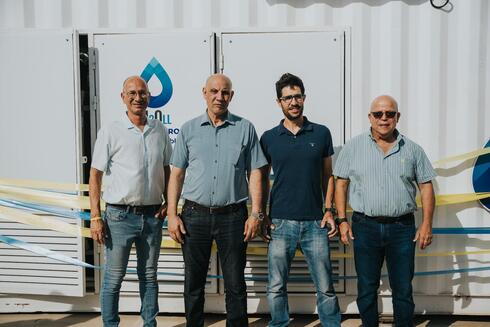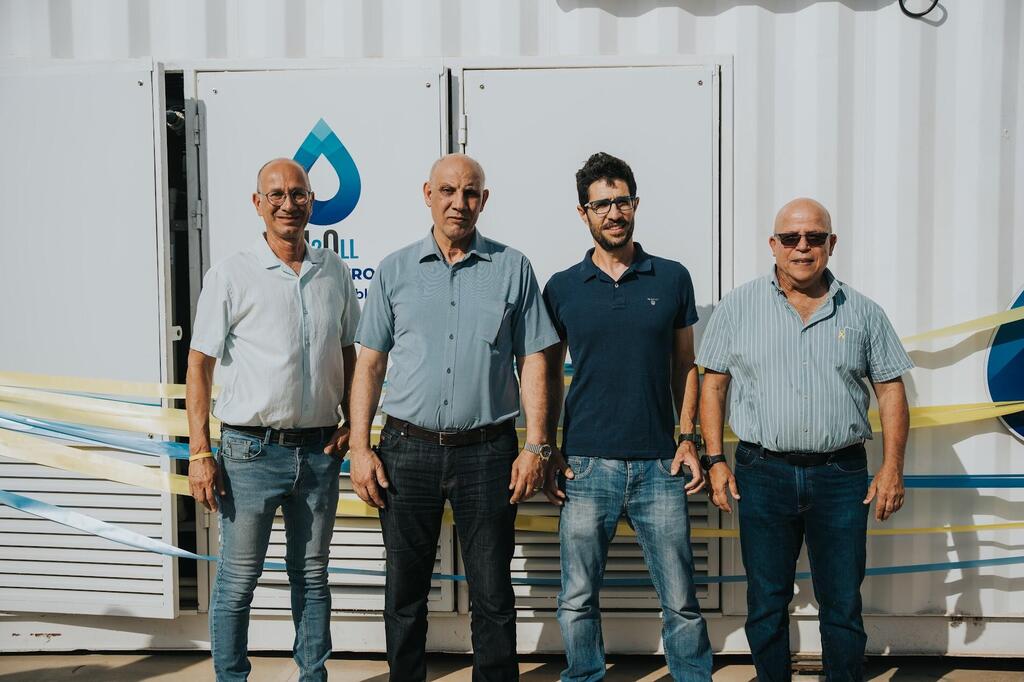
Israel's H2OLL unveils first full-scale water-from-air system in Negev
The system, located at Bedouin community Wadi Attir, is capable of producing 1,000 liters of water per day. While most water-from-air systems require about 10 grams of water vapor per kilogram of air, H2OLL’s system can function with half that amount.
Israeli company H2OLL has taken a significant step toward addressing one of the world’s most pressing challenges: access to clean drinking water. This month, the company launched its first full-scale water production system in Wadi Attir, a Bedouin community initiative in the Negev Desert. The technology, which extracts water from the air, is aiming to make a global impact, especially in arid regions where water scarcity is severe. The project stems from research at the Technion–Israel Institute of Technology and has gained momentum with a successful crowdfunding campaign that raised over 4 million shekels.
The origins of this groundbreaking project lie in the minds of Professors Eran Friedler and David Broday, experts in environmental engineering at the Technion. Together with Dr. Khaled Gommed from the university’s mechanical engineering department, they developed an alpha prototype that could pull clean drinking water from the air, even in dry conditions. What began as a concept quickly gained traction, and last week, a complete system was unveiled at Wadi Attir. The system is capable of producing 1,000 liters of water per day.
1 View gallery


Ilan Katz (from left), Dr. Khaled Gommed, Ben Gido and Prof. Eran Friedler.
(Aviv Zidkiya)
This innovative technology stands apart from conventional methods used by other companies, which rely on direct cooling to extract moisture from the air. H2OLL’s solution is based on adsorption, a more efficient process that can extract water even in environments with low humidity. While most water-from-air systems require about 10 grams of water vapor per kilogram of air, H2OLL’s system can function with half that amount. This makes it particularly suited to arid regions such as the Negev, southwestern U.S., northern Mexico, and parts of India.
The urgency behind H2OLL’s mission is evident. According to a 2023 UN report, 3.5 billion people suffer from a lack of clean drinking water for at least one month every year. The UN has set an ambitious goal of ensuring universal access to clean water by 2030, but progress has been slow. The issue affects not only developing nations; even in cities like Los Angeles, approximately 60% of drinking water is imported. In Europe, rivers are increasingly polluted. Globally, the bottled water market is worth $363 billion, highlighting the magnitude of the problem H2OLL aims to solve.
The launch of H2OLL’s system in the Negev marks the beginning of a broader plan. The company’s leaders—CEO Joab Kirsch, CTO Ilan Katz, and VP of Business Development Oded Distel—aim to expand the system’s capacity to produce 10,000 liters of water per day and integrate solar energy into the technology. Their vision extends beyond the Negev, with hopes of alleviating water shortages in regions across the globe.
Having registered a patent and secured grants from Israel’s Innovation Authority and Ministry of Environmental Protection, H2OLL is now focusing on international marketing. With its crowdfunding success, the company is building its brand and preparing for global expansion, offering a solution to the growing water crisis that afflicts billions of people worldwide.













